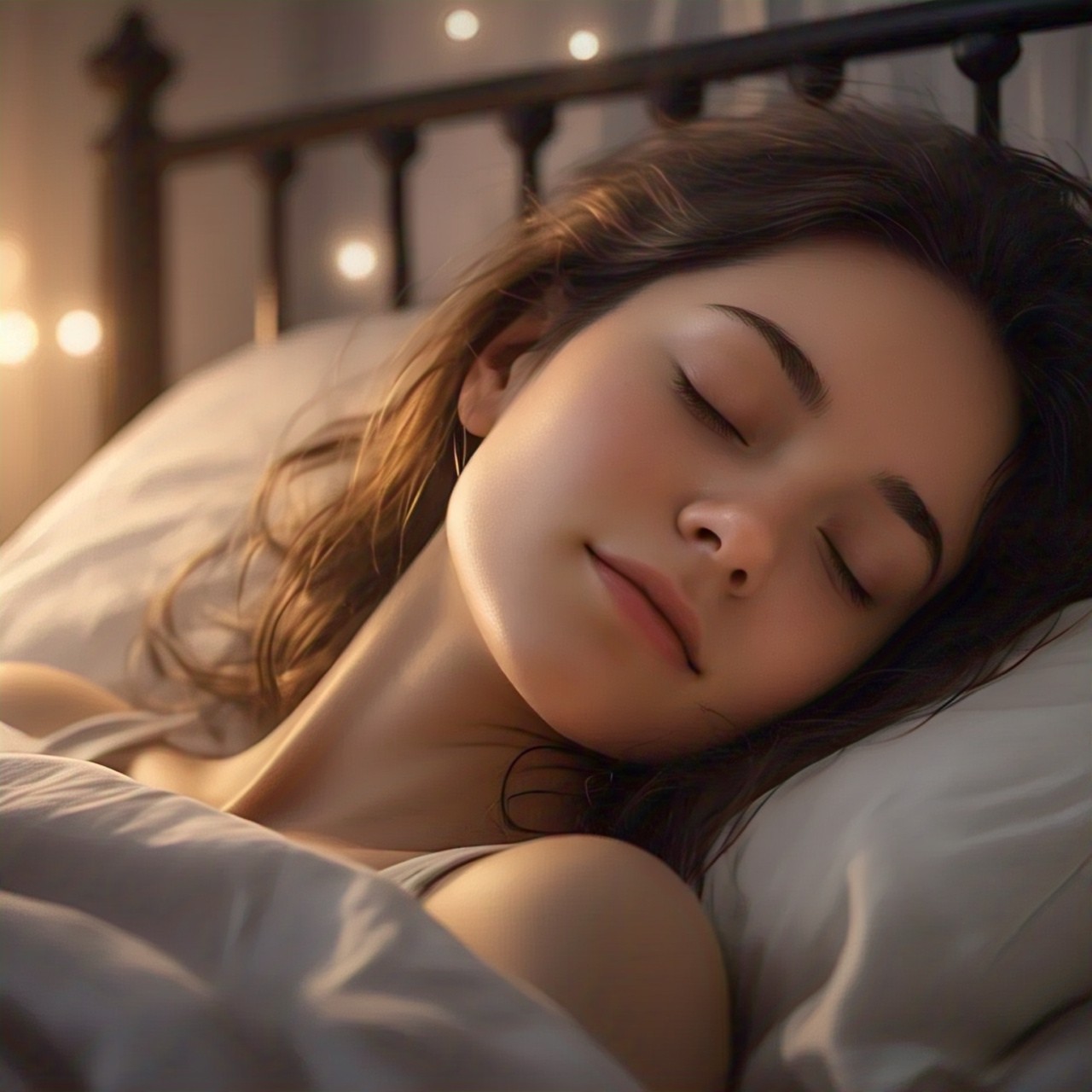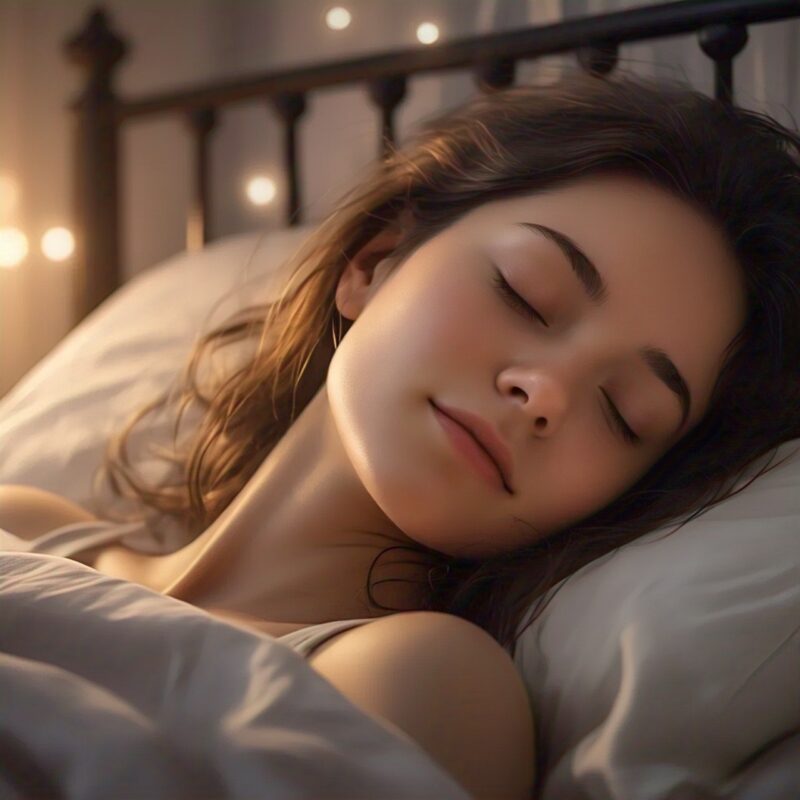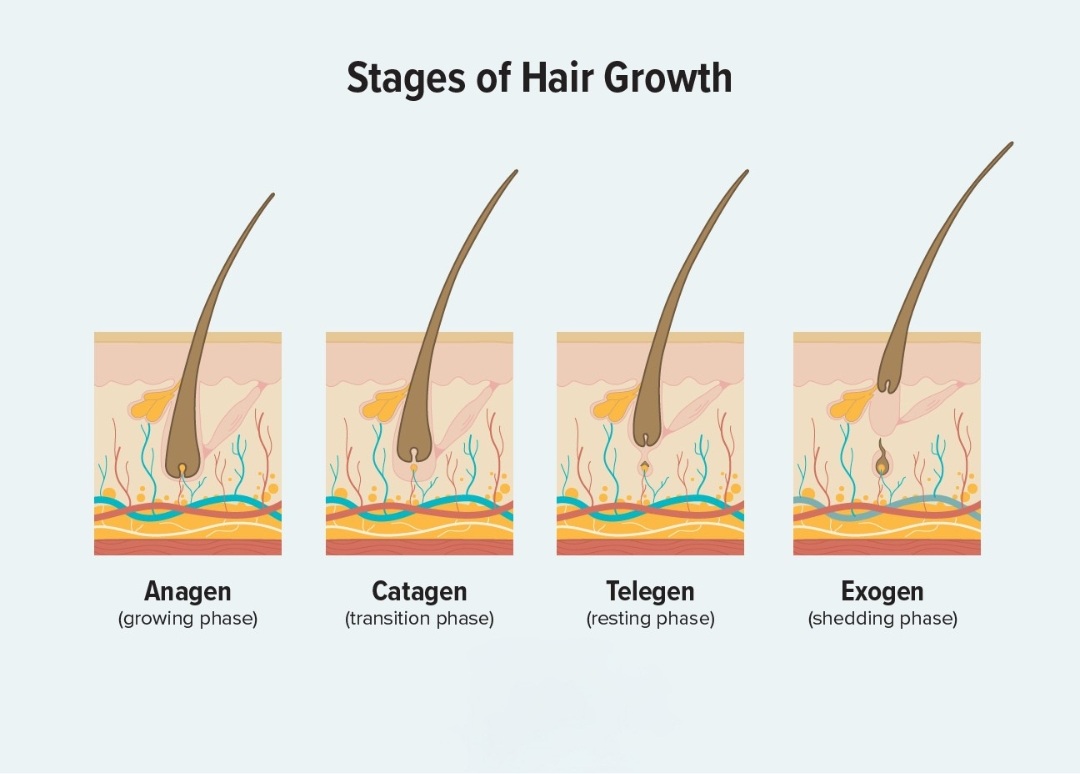We all know the importance of a good night’s sleep for our overall health – it’s practically drilled into us from childhood. But did you know that your precious beauty sleep is also a secret weapon for luscious locks? That’s right, folks, getting those Zzz’s isn’t just about feeling refreshed; it’s a key ingredient in the recipe for healthy, vibrant hair.

The Science of Sleep and Hair Growth: It’s More Connected Than You Think
Let’s get down to the nitty-gritty: What exactly is the link between sleep and hair growth? Well, while you’re busy catching those precious REM cycles, your body is hard at work on a whole host of essential functions. One of those is cell regeneration and repair, which happens at an accelerated rate while you’re snoozing. This is crucial since our hair grows following specific growth cycles rather than growing continuously. These cycles, which include the growth phase (Anagen), the transition phase (Catagen), and the rest/shedding phase (Telogen), are quite sensitive to our internal environment. Think of the Anagen phase, where your hair is actively growing – it can last for 3-7 years, but if you’re constantly burning the candle at both ends, it won’t last as long as it should.
Now, a lack of sleep throws your body into a state of stress, and stress unleashes cortisol, the infamous “stress hormone”. In large doses, cortisol is not your friend. It can disrupt the hair growth cycle, often leading to a shorter Anagen phase and a greater number of hair follicles entering the shedding phase. In fact, some studies of the NIH (National Institutes of Health) have shown that the percentage of hair follicles in the shedding (telogen) phase can increase by up to 20% in people who are chronically sleep-deprived. So yeah, that late-night Netflix binge might be costing you more than just precious time.
The Cortisol Conundrum: How Stress Steals Your Hair
Cortisol isn’t just some abstract idea—it’s a real issue that can seriously mess with your hair. When stress becomes a regular part of your life, your body shifts gears to handle it. Instead of helping you grow thick, beautiful hair, it’s too busy dealing with the stress. High cortisol levels can push your hair follicles into a resting phase too soon, like they’re hitting the “pause” button. While not everyone experiences the same effects, a lot of people with high stress levels notice their hair shedding more than usual.
The Sleep-Hair Connection: What Happens When You Don’t Get Enough Sleep?
So, what happens when you consistently short-change yourself on sleep? Besides feeling groggy and irritable, your hair may be suffering silently. Here’s what can happen when you don’t prioritize your sleep:
Slowed Hair Growth: Your hair follicles just don’t have the energy to grow new hair as effectively as they should. You might find that your hair’s growth feels like it’s moving at a snail’s pace.
Thinning Hair: Existing strands can become thinner and more fragile because they’re not getting the support and nourishment they need to stay strong. It’s like your hair is gradually losing its oomph.
Increased Hair Shedding: You might notice more hair coming out than usual. While the exact amount varies, those who sleep less often find more hair on their brush or in the shower.
Dry and Dull Hair: Sleep deprivation can lead to dehydration, and that can make your hair look dull and lifeless, not to mention that it can impact scalp health.
How to Optimize Your Sleep for Healthier Hair: It’s Time to Hit the Snooze Button
Okay, so sleep is essential for healthy hair. What can you do to make sure you’re getting enough? Here are some actionable tips, backed by data and expert advice:
Establish a Consistent Sleep Schedule: Try to go to bed and wake up around the same time each day, even on weekends, to keep your body’s sleep cycle on track. This can have a significant impact on sleep quality.
Create a Relaxing Bedtime Routine: Do something that helps you wind down before bed. Whether it’s reading, taking a warm bath, or listening to calming music, it sends your body the signal that it’s time to sleep.
Optimize Your Sleep Environment: Make your bedroom a haven for sleep – dark, quiet, and cool. Think comfy bed, cozy blankets, and a peaceful space.
Limit Screen Time Before Bed: The blue light from your phone or computer can mess with your sleep cycle. Experts suggest trying to avoid screens at least an hour or two before bed.
Consider a Natural Sleep Aid: If you struggle to fall asleep, things like herbal teas or essential oils might help, but it’s important to talk to a doctor if you are having ongoing sleep problems.
So, tonight, as you settle into bed, remember the science behind a good night’s sleep. It’s the time when your body repairs itself, hormones balance, and cell regeneration takes place – processes that are essential for healthy hair growth. But beyond the science, remember that sleep is also a moment of deep relaxation, a chance to disconnect and recharge. You’re not just resting; you’re investing in both the health of your body and the beauty of your hair. Sweet dreams, and may the care you give yourself tonight reflect in the strength and radiance of your hair tomorrow.





